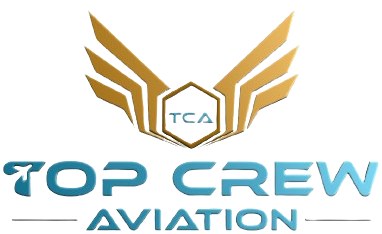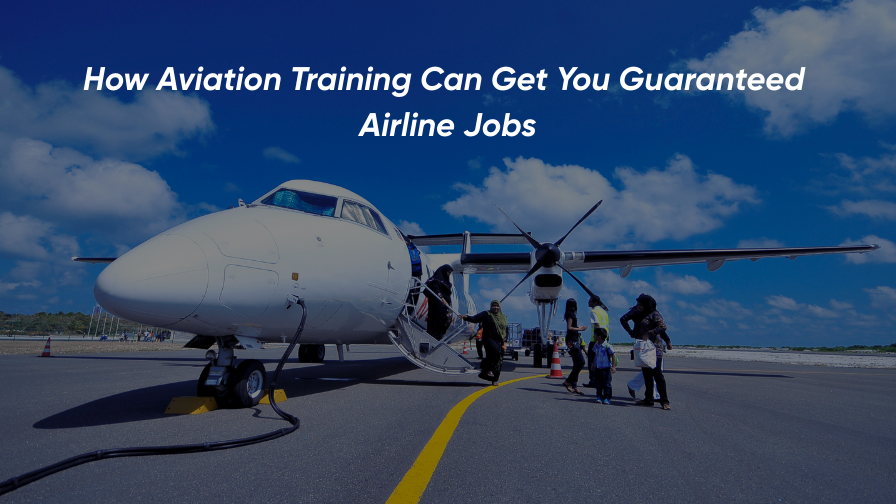Do you dream of working in the skies or being part of the fast-paced aviation industry? For many, the idea of flying planes, assisting passengers, or working behind the scenes in airports feels like a dream job. But here’s the good news: aviation training can actually make this dream a reality—and yes, it can even help you land guaranteed airline jobs.
In today’s competitive world, airlines are looking for skilled, confident, and well-trained professionals. Whether you want to be a pilot, cabin crew, or ground staff, specialized aviation training equips you with everything you need—knowledge, practical experience, and professional grooming. Without training, your chances of getting hired directly are very slim. But with the right aviation institute, your career path becomes smoother, faster, and much more secure.
Think of aviation training as a bridge. On one side, you have your passion for flying or working in aviation. On the other, you have a successful career with leading airlines. Aviation training is what connects the two and ensures you get there without unnecessary struggles.
This blog will walk you through how aviation training can guarantee airline jobs, what courses are available, eligibility, the career benefits, and why investing in training can secure your future in the airline industry. If you are serious about starting a career in aviation, keep reading—this guide is designed to give you clarity, confidence, and a clear action plan.
1. Why Aviation Training is the Key to Airline Jobs
Many students wonder: “Do I really need aviation training to get a job?” The simple answer is yes. Airlines do not just look for academic qualifications. They want practical skills, communication excellence, safety awareness, and confidence—all of which come only from structured training.
Here’s why training matters:
- Industry Standards: Aviation has strict safety and service guidelines. Training ensures you meet them.
- Professional Grooming: You learn etiquette, body language, and customer service skills.
- Hands-on Experience: Simulations, mock drills, and airport visits prepare you for real-world challenges.
- Faster Hiring: Airlines prefer candidates from reputed aviation institutes because they are already “job-ready.”
Example:
Imagine two candidates applying for a cabin crew role. One has only a graduation degree, while the other has completed an aviation training program. Airlines will almost always choose the second candidate because less time and money is needed to train them further.
Quick Tip: Choose an aviation institute that offers job placement assistance and direct airline tie-ups. That’s your fastest ticket to guaranteed airline jobs.
Read Also – Best Institutes for Cabin Crew Training in India
2. Types of Aviation Training Courses
Depending on your career goals, aviation institutes offer different training programs. Let’s break them down:
| Course Type | Duration | Career Path | Salary Range (India) |
| Pilot Training | 18–24 months | Commercial Pilot, Captain | ₹1.5–6 Lakh/month |
| Cabin Crew | 6–12 months | Flight Attendant, Purser | ₹40k–1 Lakh/month |
| Ground Staff | 6–12 months | Check-in, Baggage, Operations | ₹25k–60k/month |
| Airport Management | 12–18 months | Supervisor, Manager | ₹50k–1.2 Lakh/month |
Highlights of Each:
- Pilot Training: Learn aerodynamics, flight operations, simulators, and get licensed.
- Cabin Crew Training: Focus on communication, grooming, in-flight safety, and service.
- Ground Staff Training: Airport operations, ticketing, security, and customer handling.
- Airport Management: Leadership, scheduling, logistics, and crisis management.
Pro Tip: Cabin crew and ground staff training have the quickest return on investment since you can start working in under a year.
3. Eligibility for Aviation Training
Before you apply, you need to check if you meet the basic eligibility. The good part? Aviation is open to a wide range of students.
General Eligibility Criteria:
- Cabin Crew: 10+2 pass, age 18–27, minimum height (females 155 cm, males 170 cm).
- Ground Staff: 10+2 or graduation, good communication, basic computer skills.
- Pilot Training: 10+2 with Physics and Math, age 17+, medical fitness.
- Airport Management: 10+2 or graduation, good leadership and analytical skills.
Skills Required:
- Communication in English and Hindi
- Pleasant personality and grooming
- Problem-solving ability
- Teamwork and discipline
Note: Even if you don’t have prior aviation knowledge, training institutes prepare you from scratch.
4. How Aviation Training Guarantees Jobs
Here’s the part most students want to know: How does training guarantee airline jobs?
Direct Placements:
Reputed institutes have tie-ups with airlines. Students get direct interviews after completing training.
Skill Advantage:
Training gives you an edge over general applicants who lack aviation knowledge.
Mock Interviews & Grooming:
Institutes prepare you with real interview practice, group discussions, and confidence-building sessions.
Certifications:
Having an internationally recognized certificate makes your profile stronger.
Example:
Top airlines like IndiGo, Air India, and Vistara often recruit directly from aviation institutes because they trust the quality of candidates.
Important Tip: Not every institute offers guaranteed jobs. Always check placement records and airline partnerships before enrolling.
5. Career Growth After Aviation Training
Aviation isn’t just a job—it’s a long-term career path. With training, you can grow steadily.
Career Ladder:
- Cabin Crew → Senior Flight Attendant → Purser → In-flight Supervisor → Cabin Crew Manager
- Ground Staff → Team Leader → Duty Manager → Airport Manager → Regional Manager
- Pilot → First Officer → Captain → Training Captain → Chief Pilot
Benefits of Aviation Careers:
- Free or discounted travel perks
- High job stability in growing aviation markets like India
- Opportunities to work abroad
- Prestige and recognition in society
Fun Fact: According to IATA, India will be the 3rd largest aviation market by 2030, meaning job opportunities will only keep growing.
5. Choosing the Right Aviation Institute
Your success depends heavily on the training institute you choose.
Checklist for Choosing:
- Placement Guarantee: Do they have airline tie-ups?
- Experienced Trainers: Are the instructors ex-airline professionals?
- Practical Training: Do they offer simulators, mock flights, and airport visits?
- Global Certification: Are their courses internationally recognized?
- Student Reviews: What do past students say about placements?
Red Flags:
- No mention of placements
- Overpromising without evidence
- Outdated curriculum
Pro Tip: Always visit the institute personally before enrolling. Ask about placement records and talk to alumni if possible.
Conclusion
Starting a career in aviation is exciting, rewarding, and full of opportunities. But the truth is, raw passion is not enough. Airlines want polished, skilled, and professional candidates who can represent their brand. That’s where aviation training comes in. It bridges the gap between your dream and your destination by equipping you with the exact skills airlines look for.
From pilot training to cabin crew and ground staff programs, aviation courses prepare you with technical knowledge, grooming, customer service, and safety expertise. More importantly, reputed institutes often provide direct airline placements, ensuring that your career doesn’t just start—it takes off smoothly.
If you are serious about joining the airline industry, don’t wait. The earlier you start your training, the faster you’ll land your first job. Remember, the aviation industry is booming, and airlines are constantly looking for new talent. With the right training, you’ll not only secure a job but also build a long-term, stable, and prestigious career.
One of the leading institutes that has consistently delivered results is Top Crew Aviation. Known for its excellent placement support, modern training methods, and airline partnerships, Top Crew Aviation has become a trusted name for aspiring aviation professionals.
So, take the first step today. Aviation training is your ticket to guaranteed airline jobs—let Top Crew Aviation help you fly higher.
FAQs
1. Is aviation training necessary for airline jobs?
Yes. Airlines prefer trained candidates as they are job-ready and require less additional training.
2. What is the minimum qualification for aviation training?
Most courses require 10+2, but some ground staff programs also accept graduates.
3. Can aviation training guarantee 100% placement?
Reputed institutes with airline tie-ups can provide direct placements, but always check their records.
4. How long does aviation training take?
Cabin crew and ground staff programs take 6–12 months, while pilot training can take 18–24 months.
5. What is the salary after aviation training?
Salaries vary: ground staff earn ₹25k–60k/month, cabin crew earn ₹40k–1 Lakh/month, pilots earn ₹1.5–6 Lakh/month.
6. Can I join aviation training after graduation?
Yes. Many students join after graduation to improve career prospects.
7. Is aviation training expensive?
Costs vary. Cabin crew courses are affordable (₹1–2 lakhs), while pilot training can go up to ₹40–50 lakhs.
8. Which airlines hire from aviation institutes?
Airlines like IndiGo, Air India, Vistara, Emirates, and Qatar Airways often recruit directly from reputed institutes.
9. Do aviation jobs have age limits?
Cabin crew usually has a limit of 27 years for entry, but ground staff and management roles allow older candidates.
10. Can I work abroad after aviation training in India?
Yes, if your institute provides internationally recognized certification, you can apply to foreign airlines.


